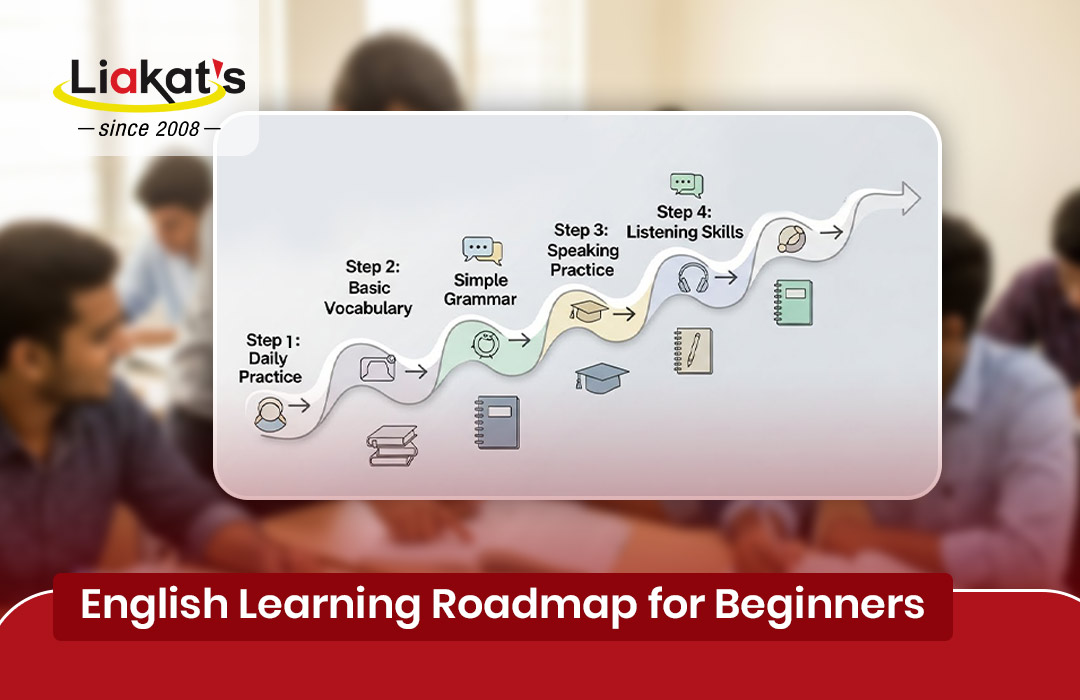English has long held an important place in the educational landscape of Bangladesh. From schools to universities, English is not only a subject but also a tool for better career prospects and global communication. However, English Language Teaching Bangladesh faces a myriad of challenges, including resource limitations, teacher training issues, and varying levels of student proficiency.
In this comprehensive post, we’ll dive deep into the current state of English Language Teaching in Bangladesh, its historical roots, challenges, and improve the quality of teaching and learning.
The Historical Context of English Language Teaching in Bangladesh
The foundation of English Language Teaching in Bangladesh was laid during the British colonial era, where English was introduced as a language of administration and education. Over the years, as Bangladesh became an independent nation, the role of English continued to evolve, gradually becoming essential for accessing higher education and international job markets.
Today, the government emphasizes English Language Learning to ensure that students are equipped with the skills needed to compete globally. English is taught from primary school through to university, although the effective English Teaching varies depending on the region, resources, and institutions.
Current Challenges in English Language Teaching in Bangladesh
Teacher Training and Qualifications
One of the significant challenges in English Language Teaching in Bangladesh is the lack of adequately trained and qualified teachers. Many English teachers, particularly in rural and underprivileged areas, lack formal training in modern language-teaching methods. As a result, they often rely on traditional, lecture-based approaches that emphasize grammar rules and vocabulary memorization over communicative competence. Without proper teacher development programs, it becomes difficult to equip students with practical language skills.
Inadequate Learning Resources
Access to proper learning materials is another pressing issue. Schools in rural areas often face a shortage of textbooks, audio-visual aids, and up-to-date educational resources that are essential for effective language teaching. Without modern teaching tools and authentic English learning materials, students are exposed to outdated content that limits their ability to interact with the language in a meaningful way.
Focus on Examination-Oriented Learning
The education system in Bangladesh is highly examination-driven. English Language Teaching is often geared toward helping students pass standardized exams, such as SSC (Secondary School Certificate) and HSC (Higher Secondary Certificate) exams, rather than developing their communication skills. This exam-focused approach encourages rote memorization of grammar and vocabulary, leaving students ill-equipped to use English in practical, real-world situations, such as speaking or writing fluently.
Disparity Between Urban and Rural Schools
Urban schools, particularly private and English-medium institutions, tend to have more access to trained teachers and modern learning materials. In contrast, rural schools often lack such resources, creating a gap in the quality of English Language Teaching. Students in rural areas face more challenges in gaining proficiency in English due to this imbalance.
Large Class Sizes
Another issue plaguing English Language Teaching is the high student-to-teacher ratio. In many government schools, especially in rural areas, class sizes can exceed 50 or more students. Managing such large groups makes it difficult for teachers to provide individual attention, assess each student’s progress, or implement interactive, communicative teaching methods. As a result, students often fall behind without receiving personalized guidance.
Language Anxiety and Lack of Confidence
Many students in Bangladesh suffer from language anxiety, which hinders their ability to practice speaking English in and outside the classroom. This anxiety stems from fear of making mistakes, being ridiculed by peers, or failing exams. The lack of opportunities for speaking practice in classrooms exacerbates the problem. Students may develop an understanding of written English, but they struggle to apply their knowledge in conversation due to a lack of confidence.
Insufficient Use of Technology
While technology has the potential to revolutionize English Language Teaching in Bangladesh, its usage is still limited, particularly in government and rural schools. Most classrooms lack access to digital tools such as interactive whiteboards, language labs, and e-learning platforms that can enhance the learning experience. Without access to such technologies, students miss out on opportunities to interact with native English speakers and practice through engaging, multimedia-based activities.
Curriculum Limitations
The English curriculum in many international schools remains outdated and often fails to align with the needs of students in a globalized world. The current syllabus is heavily grammar-focused, leaving little room for improving communication skills. Furthermore, the lack of integration between different skills—reading, writing, speaking, and listening—makes it difficult for students to become well-rounded English speakers.
Parental Involvement and Societal Pressure
In many cases, parents and society prioritize academic success and grades over actual language competency. This leads to added pressure on students to memorize content for exams rather than focus on understanding and using English in practical contexts. Without adequate support and encouragement at home, students may feel discouraged from practicing English outside the classroom.
Innovations and Strategies to Improve English Language Teaching
Implementation of Communicative Language Teaching (CLT)
One of the most significant innovations in English Language Teaching in Bangladesh is the gradual shift toward Communicative Language Teaching (CLT). The approach encourages students to use English in conversations, group discussions, and role-plays, making language learning more practical and enjoyable. By prioritizing fluency over accuracy, CLT helps students gain confidence in using English in real-world situations.
Teacher Training and Professional Development
Upgrading teacher training programs is a vital strategy for improving English Language Teaching in Bangladesh. Teachers need to be equipped with modern teaching methodologies, classroom management skills, and knowledge of digital tools. Several government initiatives, NGOs, and international organizations have already started offering professional development courses for English teachers, aiming to enhance their ability to deliver engaging, communicative lessons.
Integration of Technology in Classrooms
The use of technology can revolutionize English Language Teaching by providing access to global resources, interactive content, and diverse teaching tools. E-learning platforms, mobile apps, and language labs can help make English lessons more engaging and effective. In recent years, Bangladesh has seen a rise in the use of digital tools in urban schools, and efforts are being made to extend these resources to rural areas.
Blended Learning Approaches
Blended learning is a method with digital tools and online resources, offering a more flexible and interactive learning experience. Blended learning has proven in improving English Language Teaching by providing a more personalised and engaging educational environment.
Focus on Student-Centred Learning
A shift from teacher-centred to student-centred learning is another important innovation in English Language Teaching in Bangladesh. In this approach, students take a more active role in their learning, allowing them to discover, explore, and classroom practices English in meaningful ways. Student-centred classrooms focus on the individual needs of students, encouraging them to set goals and take responsibility for their progress.
Curriculum Reform
To make English Language Teaching more effective, the national curriculum needs to be updated and aligned with modern, communicative teaching practices. This means shifting from a grammar-heavy syllabus to one that integrates all language skills—listening, speaking, reading, and writing. Recent curriculum reforms have started to address these gaps, with the introduction of more interactive and student-friendly materials.
Promotion of Extracurricular English Activities
Outside the classroom, students need opportunities to practice English in informal settings. This can be achieved by promoting extracurricular activities such as English debate clubs, drama societies, and English-language competitions. These activities encourage students to use English in dynamic and fun ways, helping them develop fluency and confidence.
Use of Peer Learning and Mentorship Programs
Peer learning and mentorship programs can be highly effective in improving English Language Teaching. Pairing more proficient students with those who need help fosters a collaborative learning environment and allows for more focused, one-on-one practice sessions.
Assessment Reforms: Focus on Communication
Traditional assessments in Bangladesh heavily focus on grammar, vocabulary, and reading comprehension, but they often overlook students’ speaking and listening abilities. Reforming English language assessment to include oral exams, interactive activities, and communication-based tests can help shift the focus from memorization to practical language usage.
The Role of English in Higher Education and Career Opportunities
English plays a pivotal role in shaping both academic and professional success in Bangladesh. As a global language policy, it is integral to higher education, research, and career advancement. The rise of English as a medium for instruction, communication, and employment opportunities highlights its growing significance in the country.
English as a Medium in Higher Education
In Bangladesh, English is the second language and widely used as the medium of instruction in higher education institutions, particularly at universities and colleges. English-medium universities, such as BRAC University, North South University, and other Bangladeshi University, provide degrees in various disciplines entirely in English, giving students the language proficiency needed to compete in both local and international job markets.
Many of the academic resources, including textbooks, journals, and research papers, are available in English. This encourages students to develop strong English reading, writing, and comprehension skills to excel in their fields of study.
Global Career Opportunities
Proficiency in English opens doors to a wide range of global career opportunities for graduates in Bangladesh. Multinational corporations (MNCs), international organizations, and foreign companies operating in Bangladesh often require English fluency, especially for roles in management, finance, marketing, and technology.
In the IT sector, for instance, companies work with clients from English-speaking countries like the USA, the UK, Canada, and Australia. Professionals fluent in English are more likely to secure high-paying jobs and leadership positions in these industries.
Role of English in Research and Academic Publishing
Scholars and researchers who aim to publish their work in international journals must have a strong command of English. Research published in English reaches a wider audience, ensuring that findings and innovations from Bangladesh can contribute to global knowledge.
English for Government and Administrative Roles
Many high-ranking government and administrative positions in Bangladesh require a solid command of English. Civil servants, diplomats, and professionals in foreign relations and public administration often use English as a primary language for communication in their roles.
English proficiency is also essential for participating in international diplomacy, signing treaties, and engaging in negotiations. It provides a bridge for Bangladesh to interact effectively with global organizations such as the United Nations, World Bank, and International Monetary Fund.
The Future of English Language Teaching in Bangladesh
The landscape of English Language Teaching in Bangladesh is evolving, influenced by technological advancements, changing education policy, and the growing global demand for English proficiency. As the country becomes more interconnected with the global economy, the need for effective English language education will only intensify. This section will explore key trends, innovations, and strategies that will shape the future of English language teachers are teaching in Bangladesh.
Technology Integration in English Language Teaching
The future of English Language Teaching in Bangladesh will undoubtedly be shaped by technology. The increasing use of digital tools in English education, such as language testing apps, online platforms, and virtual classrooms, is transforming the way English is taught. Schools, colleges, and universities are incorporating technology to make learning more accessible and engaging for students.
Conclusion
English Language Teaching in Bangladesh is at a pivotal moment, where both challenges and opportunities are shaping its future. The demand for English proficiency continues to rise, driven by its essential role in higher education, career advancement, and global communication. However, to meet this demand, the country must address the existing gaps in teacher training, curriculum development, and access to resources.
Looking ahead, the collaboration between the government, private sector, and international organizations will be critical in ensuring that English Language Teaching evolves to meet the changing needs of students and professionals. As Bangladesh continues to grow in its global role, equipping its citizens with strong English language skills will be crucial for individual success and the nation’s overall development.
[/et_pb_text][/et_pb_column][/et_pb_row][et_pb_row _builder_version=”4.17.4″ _module_preset=”default” theme_builder_area=”post_content”][et_pb_column _builder_version=”4.17.4″ _module_preset=”default” type=”4_4″ theme_builder_area=”post_content”][et_pb_text _builder_version=”4.17.4″ _module_preset=”default” theme_builder_area=”post_content” hover_enabled=”0″ sticky_enabled=”0″]FAQs
[/et_pb_text][/et_pb_column][/et_pb_row][et_pb_row _builder_version=”4.17.4″ _module_preset=”default” theme_builder_area=”post_content”][et_pb_column _builder_version=”4.17.4″ _module_preset=”default” type=”4_4″ theme_builder_area=”post_content”][et_pb_toggle title=”What is the biggest challenge in English Language Teaching in Bangladesh?” _builder_version=”4.17.4″ _module_preset=”default” theme_builder_area=”post_content” hover_enabled=”0″ sticky_enabled=”0″]In rural areas, and the outdated teaching methods that focus more on grammar than practical communication skills.
[/et_pb_toggle][et_pb_toggle title=”How is technology helping improve English Teaching in Bangladesh?” _builder_version=”4.17.4″ _module_preset=”default” theme_builder_area=”post_content” hover_enabled=”0″ sticky_enabled=”0″]Technology is crucial for providing access to e-learning platforms, language planning apps, and online courses that offer students and teachers new ways to learn and teach English.
[/et_pb_toggle][et_pb_toggle title=”What is Communicative Language Teaching (CLT)?” _builder_version=”4.17.4″ _module_preset=”default” theme_builder_area=”post_content” hover_enabled=”0″ sticky_enabled=”0″]CLT is an approach of communication as the primary goals of foreign language learning. It encourages practical usage of English in real-life situations, which is becoming more common in Bangladesh.
[/et_pb_toggle][et_pb_toggle title=”How can teacher training improve English Language Teaching?” _builder_version=”4.17.4″ _module_preset=”default” theme_builder_area=”post_content” hover_enabled=”0″ sticky_enabled=”0″]Effective English teacher training programs equip teacher education with modern teaching techniques, tools, and resources, enabling them to create engaging and communicative English learning environments.
[/et_pb_toggle][et_pb_toggle title=”Why is English so important for students in Bangladesh?” _builder_version=”4.17.4″ _module_preset=”default” theme_builder_area=”post_content” hover_enabled=”0″ sticky_enabled=”0″]English is essential for higher education, international communication, and better career prospects. Proficiency in English opens doors to global opportunities and higher-paying jobs.
[/et_pb_toggle][/et_pb_column][/et_pb_row][/et_pb_section]




